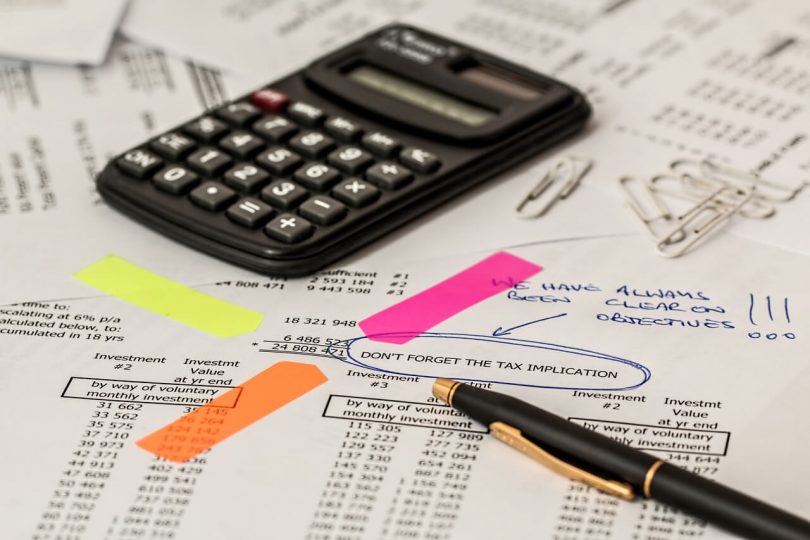Contents
Small and medium enterprises show a lot of zest for expanding the business, but more often they fail to grasp the underlying requirements. One such thing is bookkeeping, which, if not dealt with, will put your business process in jeopardy.
Many business owners are of the opinion that accounting is a fairly simple process and don’t spare the adequate attention that it deserves. But, poor accounting and bookkeeping practices can adversely affect the financial health of any organisation. In many cases, recurring bookkeeping mistakes can lead your business towards insolvency.
So, here are 10 of those common bookkeeping mistakes that small businesses should avoid at all cost to ensure smooth operations.
1. Not devoting enough time to the bookkeeping process
Proper accounting is one of the determinants of the success of your small business. It’s crucial to ensure that every financial transaction is properly recorded and categorised in your accounts, whether it’s a small payment or a hefty transaction from customers and clients.
Irrespective of how small your organisation is, taking the bookkeeping process seriously provides you with an accurate insight of your company’s prosperity and allows you to learn exactly how well (or poorly) you’ve performed within a particular span.
2. Not keeping a record of small purchases
Even the most accomplished business owners sometimes forget to keep track of their business transactions. While it may not sound like a huge issue if a meal ticket is missing, but these small purchases can mount up if ignored continuously. Also, you wouldn’t want the government breathing down your neck to check if you have claimed expenses, and don’t have any evidence to justify them.
Being aware of the small transactions ultimately makes it easier to deal with the bigger ones. This way, you’ll find it easier to maintain your books as your organisation grows in size and the number of transaction increases.
3. Being overly dependent on an accounting software
Many bookkeeping errors actually emerge from oversights that could be easily detected and rectified through a manual audit. Now, it isn’t uncommon for small businesses to completely bypass them because they’re too dependent on their accounting software.
Small businesses are required to carry out proper financial audits to look for bookkeeping mistakes in their spreadsheets, or for errors that the software failed to catch. The sooner you realise that not all mistakes will be rectified by any accounting software, the higher your chances of maintaining an error-free bookkeeping record.
4. Failing to carry out basic account reconciliation
Settling your business’ books with the bank statement every month is a responsibility that you must perform.
Account reconciliation is quite simple to carry out. You have to compare your books with your bank statement and ensure that there is no disparity. In case you find any error, get in touch your bank immediately to resolve the issue. Carrying this process out on a monthly basis allows you to ensure that bookkeeping errors are successfully eliminated before they lead to a major financial setback.
5. Not knowing the distinction between cash flow and profits
A small business can have positive cash flow within a short span and yet be unprofitable. Again, it can experience a negative short-term cash flow but still emerge as profitable in the long haul. The first situation is common among small businesses as they often need to pay the suppliers before they receive payment from their consumers.
“To get a clear picture of your organisation’s true financial standing at all times, you need to liaise with an accountant so that he/she can prepare the financial statements regularly”, says Brent Mulligan, an expert on finance from MyAssignmenthelp. These comprise of a balance sheet, profit and loss statement, and income statement, which should be presented at least quarterly.
6. Using the DIY Method of Bookkeeping
Many small business owners feel proud of wearing multiple hats, which also involves maintaining the books and accounts. However, this part of the business should be handled by a specialist.
Bookkeeping and accounting can get really technical and complex. The money invested on a professional bookkeeper or an accountant, or even on a part-time or contract basis will be beneficial in terms of the time it will save and all the mistakes that will be averted.
7. Not allotting proper budgets for each project
Does your organisation initiate a project without determining a proper budget? Beginning a project without knowing how much it could cost is a sure-shot way to end up splurge more than you actually intended.
Failing to create a budget also makes it difficult for you to control your expenditure. This ultimately leads your organisation to spend its limited funds on projects that won’t present a substantial return on investment.
As your small business grows, you’ll learn more about how much your business needs to spend to carry on with its operations. This also allows you to allocate budgets for projects that are promising enough in terms of revenue.
8. Combining personal and business expenditures
It’s imperative that business and personal expenses are recorded separately at all times, irrespective of the size of the organisation. One of the first things that small business owners should do is to open a business account and keep all of their business income in it.
The next thing to do is to work with an accountant to develop an earnings management strategy defining how cash is separated from the business to maintain personal expenses. Your earnings management strategy will be guided by aspects such as how much of your profits need to be invested back into the organisation, the time of payments for big business expenditures, your seasonal cash flow requirements, and your long-term personal financial plan.
9. Writing off significant purchases as immediate expenses
If you go to your local stationery store and pick up $250 worth of printer paper and other important resources that need to be restocked frequently, it’s absolutely essential to record the purchase under “office supplies” and then write it off.
If, however, you purchase a new printer, this needs to be recorded differently. You need to understand that it’s not about the purchase itself, but the usefulness of the items you purchase. A printer will obviously be utilised for a long time, so you can include it in the books as an asset and depreciate it over the estimated useful life of the machine.
10. Lack of communication with your bookkeeper
Your bookkeeper should always know what’s going on in your business. It’s crucial that your small business maintains complete information of its transactions, and it’s even more crucial that this information is thoroughly communicated with the bookkeeper.
Apparently, small mistakes like buying products or services, particularly those with monthly recurring expenses, and not informing this to your bookkeeper can cause serious issues down the line.
Other than maintaining clear communication with your bookkeeper, maintaining a paper record of all the transactions (big or small), makes it easier to keep tabs on all of your income and expenditure.
Wrapping it up
You will no doubt come across one of these costly accounting and bookkeeping mistakes, if not all of them while carrying out your business operations. Make sure that you learn thoroughly about accounting, or else hire a professional, and always be watchful of the possible red flags.
“The opinions expressed by BizWitty Contributors are their own, not those of BizCover and should not be relied upon in place of appropriate professional advice. Please read our full disclaimer."







